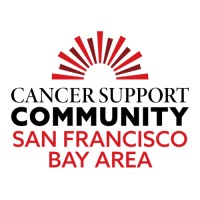
Cancer Support Community San Francisco Bay Area
Cancer Support Community San Francisco Bay Area provides free comprehensive support programs including counseling, support groups, nutrition, exercise, emergency financial assistance and patient education programs as well as special programs for teens and children. Our evidence-based programs enable cancer patients and their loved ones to partner with their treatment team to manage their treatment and improve health outcomes and quality of life. Programs are offered in-person at our Walnut Creek and Antioch centers and virtually as well in English and Spanish. Cancer Support Community San Francisco Bay Area is a 501 (c)(3) tax-exempt nonprofit organization that relies exclusively on donations from individuals, foundations and corporations. Our Federal tax identification number is 68-0157858.






